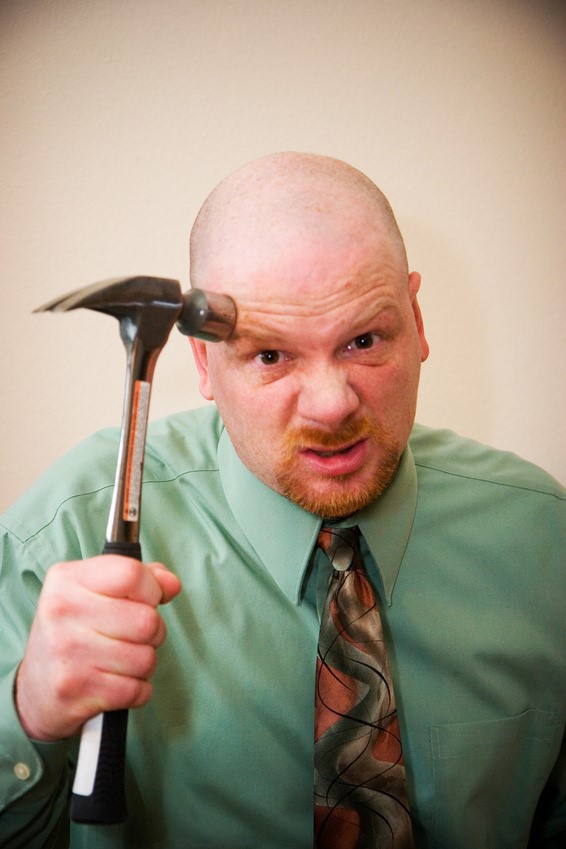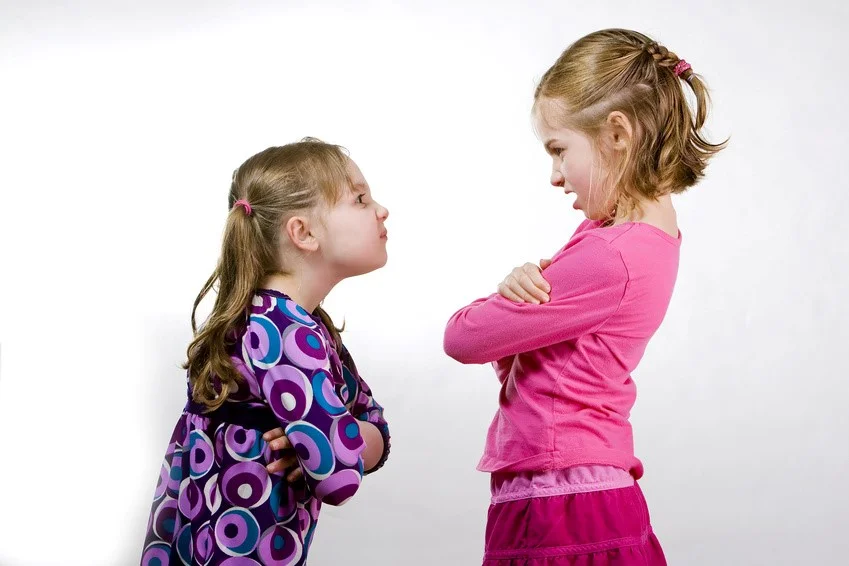
I have a wide range of interests. Beyond my love of tarot and my interest in spiritual development, I enjoy modern culture. Trends in music, fashion, entertainment and politics fascinate me. On this blog you will find my observations about the world in which we live - everything from dating advice to resturant reviews.
Here in the Dark Forest, anything can happen. If something captures my interest, I am likely to write about it here.
Find Yourself in a Magic Mirror!
Do you have trouble with self-love? Do you know what your talents and super-powers are?
Find yourself in a magic mirror!
When I say “magic mirror” you probably think of a smartass talking mirror from a Disney movie. However, the idea that we can get information from a mirror, or that a mirror can be enchanted, is not just a thing of fantasy.
The “mirror, mirror on the wall” has its origins in ancient magical practices. Today, people all over the world practice mirror magic, with excellent results.
As with any magic that turns a mundane item into a magical tool, the power comes from the Hermetic law “As Above, So Below”. Whatever task that item performs on a mundane level, so it does on a spiritual or energetic level.
So, what does a mirror do?
A mirror reflects.
We see evidence of the magical nature of mirrors in many cultures and practices.
When I was a young girl being initiated into my first Brownie troop, our ceremony involved looking into a mirror as we recited a chant:
“Twist me and turn me and show me the elf, I looked in the mirror and saw myself”.
In that ritual, we used the mirror to find within us the Brownie we were becoming.
Many people use mirror-gazing, or scrying, as a divination method to reflect truth.
A mirror becomes a focus point for concentration and inner reflection in group practices such as dance, and Bikram Yoga.
In Feng Shui, a mirror reflects a noisy neighbor’s disruptive energy back to them.
We can energetically send a psychic mirror to folks in need of enlightenment. This will cause them the painful-but-necessary experience of seeing the truth about themselves that they have been avoiding.
We can also use a mirror to help us heal from self-doubt, uncertainty about our skills, low self-esteem and lack of confidence.
If you are not aware of, and confident in, your skills and abilities, or if you can’t see your own awesomeness, try a magic mirror to help you see your own beauty and value, and to help others see it as well!
You’ll need a small compact or hand mirror. You can use a treasured heirloom, a cheap mirror from Walmart, or a leftover mirror that came with makeup.
If you like, you can decorate your mirror with symbols that resonate for you, and represent you.
To begin, you must “charge”” your mirror. Other words to describe this process include “enchant” or “dedicate”.
You can do the charging ritual as formally or as casually as you like. If you choose to perform a formal ceremony to charge your mirror, choose candles, incense and colors that support self-esteem, self-love, personal enlightenment and general success.
The core of the ritual, and the only truly necessary part, is that you must write a dedication for your mirror, and speak the dedication as you hold your mirror.
Your words will charge the mirror with your intention. Your intention is to look into the mirror and see within it your skills, your talents, your beauty, your connection to Spirit and your purpose on the planet.
Your words can be simple or elegant. You may write a rhyming dedication if you like. What is important is that you clearly state, see and feel your intention.
Here is a rhyming dedication, or incantation, you can use if you like.
I charge this mirror with an awesome task
To without delay do as I ask.
When I gaze, allow me to see
All that is valuable within me.
Once you have charged you mirror, you may use it in meditation whenever you feel the need for a confidence boost. Use you mirror to help you find the courage to pursue your dreams and desires.
Simply sit quietly and breathe. Ground yourself to the earth, and set your intention in your mind.
Now gaze into the mirror, and quiet your mind.
Focus on your breathing, and allow your gaze to soften as you continue to stare into the mirror.
What thoughts or inspirations come to you?
What do you see about yourself that you didn’t see before?
As you gaze into the mirror in a meditative state you may ask questions about your life, your journey toward self-acceptance and success. Wait for the answers to present themselves to your heart.
Let your magic mirror help you see what is special, unique and precious about you!
But We’ve Always Done It This Way! Embracing Change for the New Year
Perhaps the real reason we never keep our resolutions is our inherent fear of change.
Public Domain, via Wikimedia Commons.
I grew up as the daughter of a Methodist minister. As any PK (preacher’s kid) knows, the parsonage can be an interesting vantage point from which to view some very pedantic behavior from some otherwise good church people.
One of the behaviors that irritated both my parents was the inevitable resistance to any type of change. When my father changed Sunday service from 11:00 am to 9:30 am to avoid the heat of summer in the days before air conditioning, the protest was loud and long.
The battle cry of those resisting change was always the same. “But we’ve always done it this way!” They would exclaim, as if repetition guaranteed a better outcome than innovation ever could.
Many years later, I see the same resistance in myself, and in the people around me. Nowhere does it show up more clearly than in my constant struggle to stay current with technology.
“What do you mean, I can’t use the same password for everything? I used to be able to! Why should I have to deal with unique passwords now?”
Of course, the reason in this example is obvious. New security measures dictate new passwords.
What is it in the human mind that makes us so very resistant to change, even when the change is obviously necessary? Familiarity is comfortable, and routine can become tradition/
My resistance to every upgrade sheds light on why it is so hard to create personal growth in our own lives.
The New Year always comes with our heartfelt resolutions to do better, but we usually backslide to our default behaviors pretty quickly. Maybe that’s not because we are weak or lazy. Maybe that’s because we are inherently comforted by routine, and therefore inherently afraid of the change that takes us away from our routine.
This year, I am going to try something different. Here is the prayer/affirmation/resolution I am going to use for this New Year.
In 2016, I will be willing to release the comfort of familiarity, whenever that familiarity is keeping me from something better.
In 2016, I will be willing to learning new things, and try new things, especially things that are outside of my comfort zone.
In 2016, I will embrace change, even if I am fearful.
I truly believe these affirmations could make a difference for me, and for other people. Perhaps, if we all released old ways that don’t work in favor of ways that do, we might find the whole world benefits from some much-needed change.
Stop Trying to be a Good Person!
We often mentally divide our world into “good people” and “bad people.” We want to be good people. We fear bad people. We try to raise children that turn into good human beings.
We struggle with self-esteem, worried that those around us will discover that, underneath our attempts at goodness, a bad person lurks.
When our kids are small, we teach them good behavior, but “being good” and “good behavior” are not the same thing as being a good person.
The idea that people, rather than behaviors, can be good or bad, is a harmful myth that is long overdue for busting.
What makes a person good, or bad, in our opinions? It’s pretty subjective, and entirely related to culture and context.
You can’t be good or bad at being human. You simply are human, capable of amazing courage, creativity, kindness, generosity, greed, callousness and cruelty.
There will always be people we like, and people we don’t like. There will always be people who do things we like, and people who do things we don’t like.
There are hurt people, ignorant people, and fearful people. We call these “bad people.” Sometimes they do things we don’t like. Sometimes they do things that hurt others.
There are healed people, thinking people, and charitable people. We call these “good people”. These people do things we like, and try to help people.
We can be good at the things we do. We can do good things for the world. We can handle situations badly. We can do things that have bad consequences. We can have good intentions that result in bad outcomes. None of that is the same as being a good person, or a bad person.
Instead of striving to be good, and worrying that we are bad, let’s strive to be authentic. Let’s work to release the things that hurt us. Let’s cultivate joy. Let’s raise our children to be curious, appreciative and responsible.
Rather than fearing the people that we believe to be bad, or fearing that we, ourselves, are bad, let’s recognize that fear itself is the source of most of the badness in the world.
We are all good humans, because to be good at being human, you simply have to be born.
Perhaps we would all do better at living on the planet if we accepted the flawed beauty of our humanity as the miracle that it is. Perhaps if we stop trying to be “good” and instead focus on being “healed” we’ll have fewer hurt people in the world.
“Good” and “bad” are subjective judgments that don’t mean much of anything, especially in describing people. When we strive to be good, we are striving for a meaningless and unattainable goal. When we strive for healing and growth, when we work to be authentic, to be kind, to be strong and to be creative, we become capable of doing great things. We succeed, and we become the people that help the world evolve.
Beyond Anger and Activism
I have always been an activist. I have marched, chanted, demonstrated, picketed, canvassed, petitioned, fundraised, organized and spoken out about things that matter to me.
My family and my church taught me that being vocal about my beliefs was my patriotic duty, and my spiritual duty.
My friends told me it took courage to speak out against things that I don’t like.
My heroes are people who took a courageous stand, like Rosa Parks or Miep Gies.
Years ago, I worked for political organizations as a fundraiser and organizer. One respected organizational director often said that activism is fueled by a slow burning anger.
These days, there are lots of activists, and lots of anger. There is no doubt that activism plays a vital role in creating social change. I’m getting a little tired of the anger, though.
I think I am going to need to find a new way to fuel my desire for a more perfect society. Instead of fueling my vision with anger, I am going to fuel my vision with love.
What would it look like, I wonder, to be an activist for love?
From now on, every time I hear or see something that arouses my righteous activist anger, I am going to consciously send love to the source of my anger.
Instead of ridiculing those who thinking differently than I, I will keep them in my prayers.
Instead of staying away from those who fear and misunderstand me, I will make an effort to find some common ground.
When I see people behaving in ways of which I don’t approve, I will be an example of a different way to behave.
Instead of complaining about the problems in the world, I will use my energy to make a positive change in some small way, for somebody.
As an angry activist, I was often frustrated. I felt the work we were doing only held back the evil tide, and never conquered it.
There will always be angry activists, and that’s a good thing. Someone has to hold back that evil tide, whatever that tide may be at any given time.
But what if those of us who have become too tired, too busy, too cynical or too happy to be angry could find a new way to create change on the planet?
What if the way to do that was simply to follow that Biblical directive from the book of Matthew, “love your enemies?”
While there was plenty of reason to be angry, I am pretty sure it was love, and not anger, that caused Miep to risk her own life to try to say the lives of Anne Frank and her family.
What if anger can hold back the tide, but love is the power to conquer it?
It’s worth a try.
Staying at Peace
“Don’t let anyone steal your peace.” That’s a quote from Bikram Choudhury, although many people have adapted the concept to suit their own belief systems.
I like it. In a world where anything can happen, it’s nice to know that we can keep our balance, and maintain a sense of inner harmony.
Fear, uncertainty and doubt are peace-stealers. So often, those who would steal our peace do it by sowing seeds of fear.
To keep our peace, we must reject fear.
To stay at peace, we must accept uncertainty.
If we could each commit to maintaining our own peace, and resisting fear, what would the world look like then?
Three Ways to be a Great Dad
Father’s Day is such an interesting holiday in that it brings up “father issues’” for a lot of people.
I’ve been really blessed in my life. My adoptive father was wonderful to me, and my husband was a great dad to our kids.
But not everyone is so lucky. There is a paradigm in our society that seems to allow men the freedom to choose whether or not they want to be responsible to their children. Sometimes they don’t want to, sometimes they don’t know how to.
What many men don’t realize is the power they have to shape their children’s future, simply by being present.
Clearly, as a woman, I don’t know how to be a father. But, I have observed some things that make sense.
Fathers can teach their children how to be, and how to love. Fathers teach their kids whether they intend to or not, either by their presence or in their absence. Children who have appropriate relationships with their fathers seem more likely to make positive choices in their own adult relationships and careers.
I think sometimes young men shy away from actively participating in their children’s lives because their fathers weren’t active in their lives, so they don’t know what to do with their own kids.
Really, it’s easy to be a good dad. You just have to be there.
Here are three ways to be a great dad.
-
Play with your kids. Play with the toys they want to play with, not the toys you prefer. Many young fathers can dress a Little Pony in two seconds flat. Be that guy.
-
Don’t get caught up in gender roles. Take your daughter fishing. Have a tea party with your son. Teach your kids, by your example, that their interests don’t need to be limited by their gender.
-
Share your interests with your kids. Teach them your skills, share your hobbies and involve them in your life. Your kids want to know you, and through knowing you, will find their own sense of identity.
Being present, sharing interests and showing them their potential without false limitations with give your kids a great start. You’ll have fun, too. And you will rarely be as important to any other person as you are to your children.
Harness the Power of Words
“This heat is killing me.”
It’s June 2nd, and summer weather is in full swing here in Florida. I love summer in Florida, but it is hot. My friends, stuck here because of jobs and spouses, wish they could be snowbirds and complain from May to October.
I don’t mind it when my friends complain about the weather, or anything else. But I mind very much when those complaints use exaggerations that invoke death, dismemberment and suffering.
Saying that the heat is killing you won’t actually make you die. The power of words is not such that if you simply speak, an action will occur. Since that doesn’t happen, we learn not to be careful about the energy we invoke.
Affirming over and over that something you can’t control is actually killing you does hurt you, each and every time you do it. It hurts you in two ways.
First, it gives something you can’t control more power over you than it really has.
Second, it surrounds you with negativity.
I get tired of people who avoid negative energy at all costs. Basically, if you live on the planet you will deal with some negative stuff.
But why create more negativity then you need to?
The heat is not killing you.
You won’t die if you don’t get the exact thing you want.
You won’t kill someone you love if they disappoint you.
A part of your body that aches is also not killing you.
We can harness the power of words for healing and empowerment. Why use it to do the opposite?
The Blame Game
When addressing problems large or small, there is a difference between finding a cause and finding fault. Finding a cause helps us fix a problem. Finding fault distracts us so we can't fix the problem.
It seems to be human nature that, when a problem is discovered, the first thing we want to know is "Whose fault is this and how can we punish them?" Sometimes we might have better outcomes if we focus more on solutions and less on casting blame.
I wonder what evolutionary goal we are serving when we are more interested in blame and punishment than knowledge and solutions.
There seems to be something in our nature that divides us. It’s us against them, the good guys versus the bad guys. The truth is, there is more that we have in common than there is that divides us.
Our need to play the Blame Game, and our need to divide the world into good and bad, us and them, doesn’t seem to be serving us.
It doesn’t serve us in our personal lives, and it doesn’t serve us on a global level.
What if we worried less about punishing people, and more about healing people?
What if we assumed that the majority of people with whom we disagree aren’t inherently evil?
What if we came to understand that life is just life? Sometimes things happen and it’s not anyone’s fault.
What if we learned to forgive our own mistakes, and the mistakes of others?
Now, more than ever before, we, as individuals and as communities, have the opportunity to practice conscious evolution. We can pick a path and grow in that direction. What might happen if we chose to grow away from blame and punishment and grow toward healing and acceptance?
Six Rules for Success
Having achieved some success in my metaphysical career, I love the opportunity to encourage new students to move forward in achieving their dreams. Here’s the synopsis of a recent exchange that happened over a period of a week or so.
Student: I want to take the next step.
Me: Ask around and find the person who will give you what you need so you can do that.
Student: I asked three people and they said no. This won’t work.
Me: Ask more people.
Student: I ask more people, and someone said yes!
Obviously, that’s a simplification, but the truth is evident. If you want something, be tenacious and don’t give up.
Here’s the problem. What happens if you really are just banging you head against the wall? At what point is it appropriate to give up?
Tenacity tells us to keep knocking on doors until one opens. But if no doors ever seem to open, at what point should we just go with the flow and figure the Universe has other plans for us? Sometimes it’s confusing to know the right thing to do.
The answer is usually this. If you are grounded, patient and hard-working, your tenacity will usually pay off, as long as you have the talent to go along with it.
Spiritual people, by their very nature, bring their spirituality to their business practice. This is helpful, as long as we understand some simple rules. Tenacity is one important rule. Here are five more.
Trust that the Universe is always operating in your best interest.
When bad things happen, this can be a hard one to swallow. Trust anyway.
Have a fearless and accurate understanding of your own talent.
Neither false modesty nor overestimation of your ability will get you anywhere.
Learn from every experience.
Everything that happens is a helpful lesson if you look at it the right way.
If you are not talented enough, make it a hobby instead of a profession.
Lots of things can bring you joy. There’s no shame in being a happy hobbyist.
Don’t overthink things.
The Universe is simple in its complexity. Thinking too much will make you more anxious, not more prepared.
Three Ways to Nurture your Inner Child
Why do grownups become so pedantic and stubborn?
Maybe it is because we fail to nurture the inner child in happy ways, so the inner child throws tantrums and misbehaves!
There are so many ways to nurture the inner child. It starts when we first acknowledge that within us resides a remnant of childhood self, who still wants to explore and enjoy life as only a child can.
How can we honor this inner child in healthy, helpful ways? Here are three ways to try.
-
Sing and Dance.
Music is a fact of every child’s life. Every child sings, dances and performs, and most try a musical instrument. By the time we are grown, only the most talented continue to explore music.
Regardless of our level of expertise or talent, there is always a way for us to enjoy the creativity of music with the joy of a child. Take a lesson, join a band, purchase an instrument or just go dancing.
-
Embrace Color.
Children have favorite colors, and delight in wearing, eating and creating colorful things. When we grow up we trade our crayons and markers for black pens, and our color clothes for neutral-toned business suits. You inner child will squeal with delight when you welcome color back into your life.
-
Play!
Why not, swim, ride a bike, blow bubbles or fly a kite? Your adult self needs the exercise, and your inner child will thank you.



















